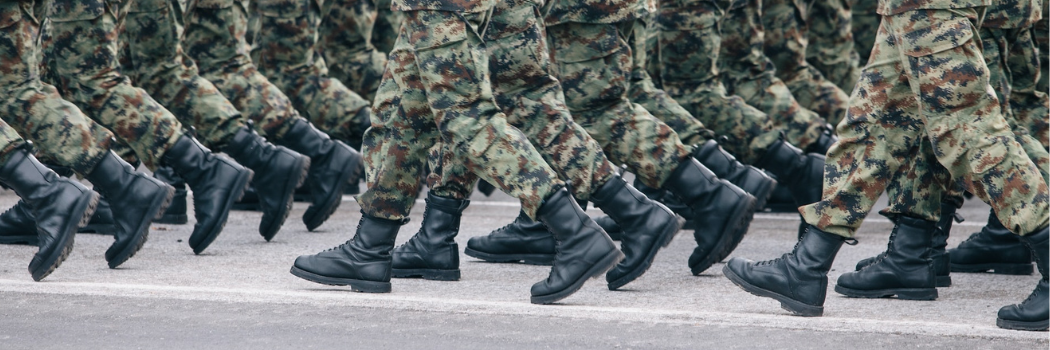Understanding moral injury in war veterans

On 11 November, millions of people in the UK and beyond remember the service and sacrifice of our Armed Forces on what is known as Remembrance Day.
To mark this day, we caught up with researcher and war veteran, Revd Dr Brian Powers to find out more about his research on moral injury – something which is common amongst war veterans.
What is moral injury?
Moral injury is where someone experiences sustained negative moral emotions such as guilt, shame, contempt and anger, which result from that person being put in a situation where they’ve had to violate their own personal moral code. They’ve done something they feel is not right.
This was first observed in members of the Armed Forces and veterans, but we’ve also seen it in healthcare professionals during the Covid-19 pandemic, in police officers, vets and others.
Moral injury often involves a particular sense of self-condemnation and the loss of faith or trust in religious, moral and societal institutions.
It can occur alongside Post-Traumatic Stress Disorder (PTSD), but it is distinctly different. In PTSD, our body or mind reacts to traumatic stress whereas in moral injury, it involves a deep moral troubling feeling about our individual and collective actions, inactions and core values.
How did you come to specialise in this area?
I’m a veteran of the US Air Force and served with army units in Iraq and Afghanistan.
Although I have experienced moral injury myself, it was a profoundly less acute form than many others. When I left the Air Force, I went to seminary and graduate school in theology, attempting to reconcile my own experiences of wartime violence – including the suicide of several friends and brothers in arms - with my faith.
I discovered a profound expression in the language of theology that, for me, could hold together both the injustice and agony of a broken world as well as point the way towards authentic hope.
Why is it important to create a better understanding of moral injury?
Moral injury is incredibly damaging to our sense of self, our ability to form healthy relationships and to perceive ourselves as “good people.”
We know from multiple studies that strong and totalising self-condemnation is linked to suicide and suicide ideation. Several studies even suggest that in military veterans who suffer both PTSD and moral injury, the severity of moral injury is the greatest predictor of suicide.
So, the better we can understand moral injury and explore potential pathways to healing, the better care we can offer to those who suffer from it, and the better we can understand where we may need to have national and societal conversations about our cultural values and how they contribute to moral injury.
How can people support those suffering from moral injury?
If we can all have a better understanding of the emotions people with moral injury are dealing with, we can offer them safe spaces to express those feelings. This can be a life-saving relief valve for someone and open up potential avenues for recovery.
Awareness of the moral traumas of war can also collapse the distance between the rather simplistic moral language used in the political discourse around conflict and the actual lived experience of veterans. This will hopefully create a more supportive environment in which military members return from conflict without being judged but appreciated and supported by a community willing to help bear their burdens.
For clergy, chaplains, clinicians and others who care for those experiencing moral injury, a greater understanding could lead to better resources to draw from, leading to better long-term care and more positive outcomes for the morally injured.
Find out more
- Our International Centre for Moral Injury aims to improve our understanding of the causes and impacts of moral injury internationally and explore, cultivate and share sources of recovery.
- You can follow the Centre on YouTube and X.
- Join us for a talk by Brian Powers on Friday 10 November in Durham Castle: The Truth Untold: Remembrance and Moral Injury or find out about our monthly webinars and annual conference.
- The Centre is part of our Department of Theology and Religion. If you’re feeling inspired, visit our Theology and Religion webpages for more information on our undergraduate and postgraduate programmes. The International Centre for Moral Injury is accepting applications for PhD places and other postgraduate programmes.
Our Department of Theology and Religion is ranked 6th globally in the QS World University Rankings by Subject 2023 and is consistently rated as one of the top Departments in the world.
One of the most varied and dynamic in the UK, our Department is a place where ‘belief’ and ‘beliefs’ are taken seriously, respected, and studied. Together, we form a lively and welcoming community to those of all faiths and to those of none.


/prod01/prodbucket01/media/durham-university/departments-/theology-amp-religion/21213.jpg)